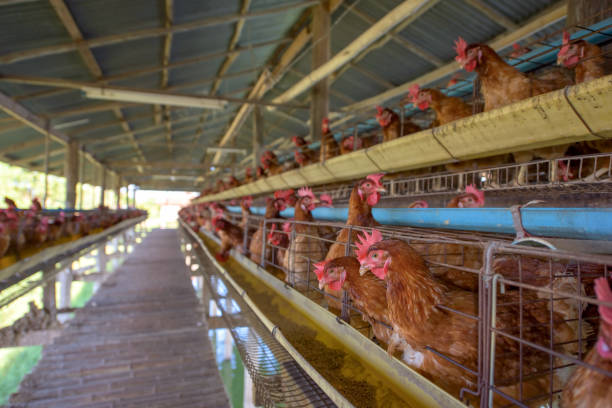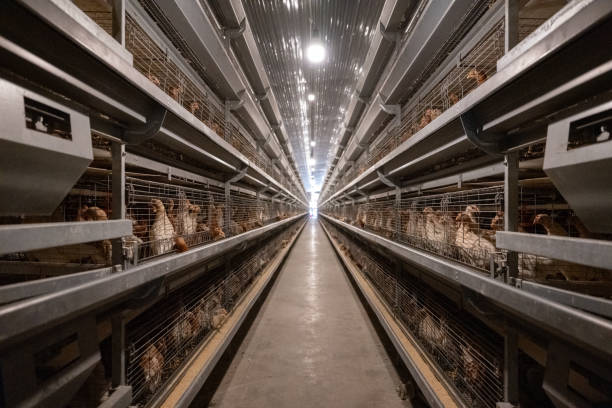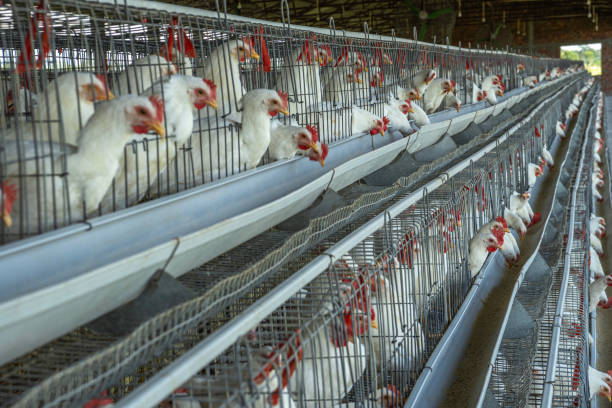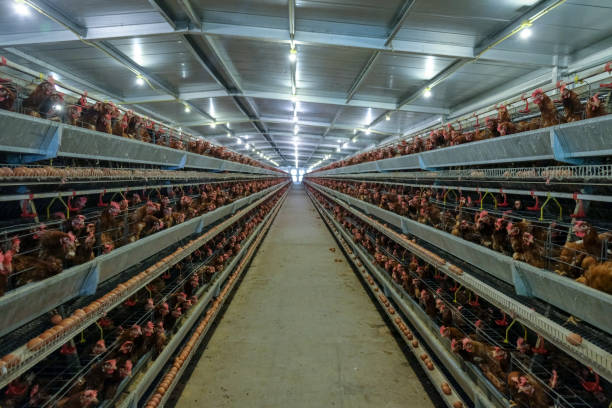
Essential Components of an Egg Laying Chicken Business Plan for Growth
Essential Components of an Egg Laying Chicken Business Plan for Growth
Starting and growing a successful egg laying chicken business requires more than just passion and a few birds. It needs a well-thought-out plan that includes clear strategies, practical goals, and a strong understanding of the market and industry demands. Whether you’re just beginning or looking to scale an existing operation, a solid business plan is your roadmap to profitability and long-term success. At Livi Machinery, we design smart, customizable poultry equipment to support businesses at every stage, and we understand how critical a well-planned foundation is to growth.
Understanding the Market and Setting Realistic Goals
Before designing poultry houses or purchasing laying chicken cages, it’s crucial to research the market in your region. Are there strong local demand trends for organic eggs, free-range products, or traditional caged eggs? This insight will influence everything from your farming method to your marketing approach. It also affects your production capacity, staffing needs, and capital investment. Setting SMART goals – specific, measurable, achievable, realistic, and timely – helps guide your planning and ensures you stay on target.
For example, if your aim is to produce a certain number of eggs per week within two years, that goal will influence the number of laying hens you need, the size of your chicken farm, and even the type of equipment you choose. Planning with scalability in mind allows you to grow incrementally and invest at the right pace without overextending resources.
Choosing the Right Equipment and Facilities

Modern egg production is not just about chickens – it’s about systems, automation, and efficiency. Choosing the right equipment sets the tone for productivity and labor efficiency. This includes selecting suitable laying chicken cages, ventilation systems, feeding solutions, waterlines, and monitoring technology. High-quality, durable cages from Livi Machinery ensure your birds have a safe, hygienic environment that supports optimal health and egg production.
When choosing a cage system, consider whether a step-type, ladder-type, or colony system suits your production volume and labor resources. Each system comes with different management practices and space requirements. Additionally, automatic feeding and manure removal systems can significantly reduce labor input and improve farm hygiene, both of which contribute to a healthier poultry environment and higher profits.
Don’t forget about the importance of proper housing setup. The layout of your chicken house, orientation, airflow, temperature control, and lighting are all essential factors that impact bird comfort, health, and productivity. A well-insulated, well-ventilated house with sufficient natural or artificial light helps regulate laying cycles and reduces stress among birds.
Developing a Health and Nutrition Strategy

A healthy flock is a productive one. No matter how good your business strategy is, poor bird health or nutrition will hinder your results. Your business plan must include a comprehensive health and nutrition program. This means understanding your birds’ dietary requirements at different stages of their life cycle and working with a trusted feed supplier to ensure consistent quality.
Preventative health measures such as regular vaccinations, deworming, biosecurity protocols, and disease monitoring are also vital. Biosecurity includes managing access to the chicken house, disinfecting equipment, and isolating new or sick birds to prevent disease outbreaks. These practices protect your flock and ensure product safety, which is especially important for farms supplying eggs to consumers directly.
Moreover, monitoring egg quality and tracking production rates allows you to identify early signs of health or management issues. Keeping accurate records of mortality, feed consumption, eggshell quality, and laying patterns provides data that can inform management decisions and help optimize performance.
Financial Planning and Operational Efficiency

Behind every thriving egg business is a sound financial strategy. Your business plan should include startup costs, operating budgets, revenue projections, and break-even analysis. Consider everything from chicks and feed to labor, housing, equipment, and utilities. Accurate financial forecasting prevents cash flow problems and ensures you can meet ongoing operational expenses.
Operational efficiency goes beyond cost control – it’s about maximizing output and minimizing waste. This includes optimizing your feeding strategy to prevent overfeeding and wastage, implementing energy-efficient lighting and ventilation systems, and investing in automation where labor costs are high. For example, using Livi Machinery’s automated egg collection system reduces labor time and the risk of cracked or dirty eggs, ultimately increasing profitability.
Regular financial reviews help you track progress, adjust spending, and reinvest wisely. If your egg production exceeds expectations, reinvesting profits in upgrading equipment or expanding your operation can support long-term growth. It’s also important to explore alternative revenue streams – such as selling fertile eggs, pullets, composted chicken manure, or value-added products like farm-fresh packaging or organic-certified eggs.
If you’re ready to take your egg laying chicken business to the next level, a solid business plan is your first step toward success. But you don’t have to do it alone. At Livi Machinery, we’re not just manufacturers of high-quality, intelligent poultry equipment. We’re partners in your growth. From initial planning and site selection to turnkey installation of cages, feeders, and fully integrated systems, our team is here to support you every step of the way.
Whether you’re building a new egg farm or upgrading your existing setup, we can help you choose the right laying chicken cages, egg collection systems, ventilation equipment, and more – tailored to your production scale and goals. Ready to discuss your project in detail? Reach out to us today with your ideas, questions, or farm plans, and let’s build a smarter, more profitable future for your egg business together.
